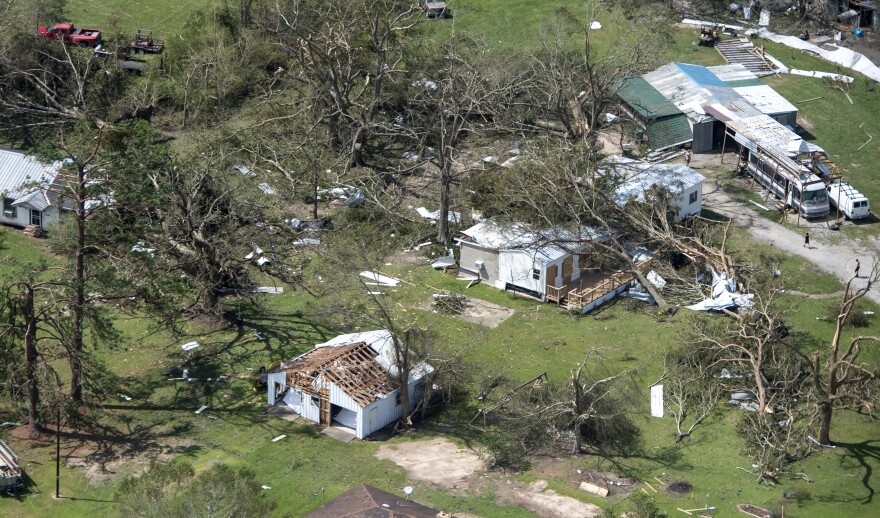Among the homes and businesses Hurricane Laura has destroyed and the lives it’s taken, the storm has also decimated coronavirus testing where Louisiana might need it most.
When Laura hit, it targeted one of the state’s hot spots for COVID-19 infections. Of the more than 11,000 people who evacuated the storm and are now staying in state shelters, only about 200 have been tested as of Friday, said Dr. Alex Billioux, the assistant secretary of health for the Office of Public Health.
For state health officials, that leaves the worrying possibility that Laura’s devastation could include seeding a third wave of infections that once again overwhelms hospitals.
“We know that it’s going to make things worse,” Billioux said. “We’re very concerned that we need more people tested so that we get control over whatever outbreak worsening Laura has caused.”
Free COVID-19 testing has been set up at locations where people are being sheltered, Billioux said, and test sites are being stood up near Louisiana National Guard distribution centers in communities ravaged by the hurricane, including Lake Charles and Sulphur. But take-up has been scarce.
In Lake Charles, there was a day when only one person showed up for a free test, Billioux said.
Of the 11,679 people being sheltered by the state, New Orleans alone is hosting 10,785 as of Friday. A free testing site at the resource center for evacuees at the Morial Convention Center has the capacity to test thousands of people, and test results should come back in two days, Billioux said. The state has arranged free busses to and from hotels where evacuees are staying.
The state’s struggle to test evacuees points to the immense challenges facing people who’ve left their homes.
“It's still the hierarchy of needs that takes precedence, so shelter, food, but then people worrying about what's going on in their homes. I can understand why going to get my free COVID test may not be the top of my priorities,” Billioux said.
The Louisiana Department of Health is trying to figure out the best way to advertise the testing.
“We don't even know if it's people not taking up the testing versus people just not even being aware that all of this testing is there for them to take advantage of,” Billioux added.
It’s not just those staying in shelters. The storm has spread people across the state. They might have traveled with strangers. They might be staying with family or friends. Billioux called this a “peak time” to get tested so evacuees know if they’ve been exposed to COVID-19.
If an evacuee does test positive, the state can provide what they need in their hotel or motel room to isolate for the recommended 14 days. That could become more complicated for families or people who are traveling, but the recommendation remains to isolate, and those with family members who are vulnerable to the virus should isolate alone.
The state’s now significant blind spot in COVID-19 testing comes amid rising cases as schools and colleges reopen, forcing the state to launch an “early warning system” for viral spread in schools. New Orleans has seen a recent rise in new cases, and Tulane has doubled its testing to combat a spike in asymptomatic cases.
The other major concern is the long weekend. Louisiana’s second, far more widespread wave of COVID-19 infections this summer came after people relaxed their precautions over Memorial Day weekend.
“There was too much activity, too few people wearing masks, too few people being socially distant, too many people were interacting with others even if they felt ill. Those are the things we just cannot have if we’re going to keep on top of this virus,” Gov. John Bel Edwards said at a press conference in New Orleans on Friday.
For Billioux, the danger of outpacing health care resources is even greater after Laura significantly damaged hospitals in Lake Charles, forcing patients to be transferred elsewhere.
“At a time when our hospitals are at even more strained capacity because they've had to absorb hospitals that had to evacuate, that could mean more people coming in, needing hospital care that we just don't have the capacity to give care to,” he said.






